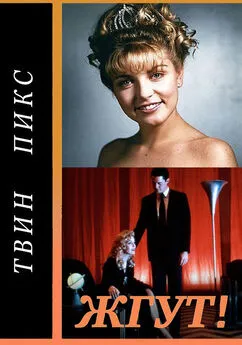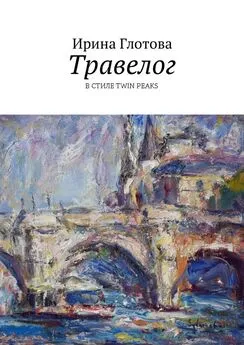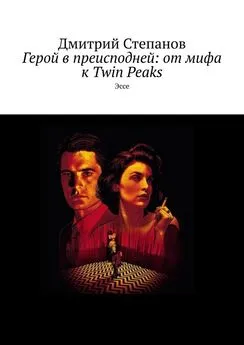Peake, Mervyn - 02 Gormenghast
- Название:02 Gormenghast
- Автор:
- Жанр:
- Издательство:неизвестно
- Год:неизвестен
- ISBN:нет данных
- Рейтинг:
- Избранное:Добавить в избранное
-
Отзывы:
-
Ваша оценка:
Peake, Mervyn - 02 Gormenghast краткое содержание
02 Gormenghast - читать онлайн бесплатно полную версию (весь текст целиком)
Интервал:
Закладка:
Titus sat astride.
He was dressed in the coarse, loosely fitting garments that were worn by the castle children. For the first nine years of his life the heir to the Earldom was made to mix with, and attempt to understand the ways of, the lower orders. On his fifteenth birthday such friendships as he had struck would have to cease. His demeanour would have to change and a more austere and selective relationship with the personnel of the castle would take its place. But it was a tradition that in the early years, the child of the Family must, for certain hours, at least, of every day, be as the less exalted children, feed with them, sleep in their dormitories, attend with them the classes of the Professors, and join in the various time-honoured games and observances like any other minor. Yet for all that, Titus was conscious of always being watched: of a discrepancy in the attitude of the officials and even at times of the boys. He was too young to understand the implications of his status, but old enough to sense his uniqueness.
Once a week, before the morning classes, he was allowed to ride his grey horse for an hour beneath the high southern walls, where the early sun would send his fantastic shadow careering along the tall stones at his side. And when he waved his arm, his shadow-self on a shadow-horse would wave its huge shadow-arm as they galloped together.
But today, instead of trotting away to his beloved southern wall he had, in a moment of devilment, turned his horse through a moss-black arch and into the castle itself. In the still silence his heart beat rapidly as he clattered along stone corridors he had never seen before.
He knew that it would not be worth his while to take French leave of the morning classes, for he had been locked up more than once during the long summer evenings for such acts of disobedience. But he tasted the sharp fruits of the quick bridle-wrench which had freed him from the ostler. It was only for a few minutes that he was alone, but when he came to a halt in the high plaster-walled hall, with the rusting helmet above him, and far above the helmet the dim mysterious balconies, he had already dulled his sudden itch for rebellion.
Small though he looked on the grey, there was something commanding in the confident air with which he sat the saddle - something impressive in his childish frame, as though there was a kind of weight there, or strength - a compound of spirit and matter; something solid that underlay the whims, terrors, tears and laughter and vitality of his seven years.
By no means good-looking, he had, nevertheless, this presence. Like his mother, there was a certain scale about him, as though his height and breadth bore no relation to the logic of feet and inches.
The ostler entered the hall, slow, shuffling, hissing gently, a perpetual habit of his whether grooming a horse or not, and the grey pony was at once led away in the direction of the school-rooms to the west.
Titus watched the back of the ostler's head as he was led along but said nothing. It was as though what had just occurred was something they had rehearsed many times before, and that there was no need for comment. The child had known this man and his hissing, which were as inseparable as a rough sea from the sound that it makes, for little more than a year, when the grey was given him at a ceremony known as 'The Pony Giving', a ceremony that took place without fail on the third Friday after the sixth birthday of any son of the Line who was also, by reason of his father's death, an earl in his minority. But for all this length of time - and fifteen months was a considerable span for a child who could only remember with any distinctness his last four years - the ostler and Titus had exchanged not more than a dozen sentences. It was not that they disliked one another, the ostler merely preferring to give the boy, pieces of stolen seed-cake to making any effort at conversation, and Titus quite content to have it so, for the ostler was to him simply the shuffling figure who took care of his pony, and it was enough to know his mannerisms, the way his feet shuffled, the white scar above his eye, and to hear him hissing.
Within an hour the morning classes were under way. At an ink-stained desk, with his chin cupped in his hands, Titus was contemplating, as in a dream, the chalk-marks on the blackboard. They represented a sum in short division, but might as well have been some hieroglyphic message from a moonstruck prophet to his lost tribe a thousand years ago. His mind, and the minds of his small companions in that leather-walled school-room, was far away, but in a world, not of prophets, but of swopped marbles, birds' eggs, wooden daggers, secrets and catapults, midnight feasts, heroes, deadly rivalries and desperate friendships.
FIVE
Fuchsia was leaning on her window-sill and staring out over the rough roofs below her. Her crimson dress burned with the peculiar red more often found in paintings than in Nature. The window-frame, surrounding not only her but the impalpable dusk behind her, enclosed a masterpiece. Her stillness accentuated the hallucinatory effect, but even if she were to have moved it would have seemed that a picture had come to life rather than that a movement had taken place in Nature. But the pattern did not alter. The inky black of her hair fell motionlessly and gave infinite subtlety to the porous shadow-land beyond her, showing it for what it was, not so much a darkness in itself as something starved for sunbeams. Her face, throat and arms were warm and tawny, yet seemed pale against her red dress. She stared down, out of this picture, at the world below her - at the north cloisters, at Barquentine, heaving his miserable and vicious body forwards on his crutch, and cursing the flies that followed him as he passed across a gap between two roofs and disappeared from sight.
Then she moved, suddenly turning about at a sound behind her and found Mrs Slagg looking up at her. In her hands the midget held a tray weighted with a tumbler of milk and a bunch of grapes.
She was peeved and irritable, for she had spent the last hour searching for Titus, who had outgrown the fussings of her love. 'Where is he? Oh, where is he?' she had whimpered, her face puckered up with anxiety and her weak legs, like twigs, that were forever tottering from one duty to another, aching. 'Where is his wickedness, that naughty Earl of mine? God help my poor weak heart! Where can he be?'
Her peevish voice raised thin echoes far above her as though, in hall after hall, she had awakened nests of fledgelings from their sleep..
'Oh, it's you,' said Fuchsia, throwing a lock of hair from her face with a quick jerk of her hand. 'I didn't know who it was.'
'Of course, it's me! Who else could it be, you ‘stupid’? Who else ever comes in your room? You ought to know that by 'now', oughtn't you? Oughtn't you?'
'I didn't see you,' said Fuchsia.
'But I saw 'you' - leaning out of the window like a great heavy thing - and never listening though I called you and called you and called you to open the door. Oh, my weak heart! - it's always the same – call, call, call, with no one to answer. Why do I trouble to live?' She peered at Fuchsia. 'Why should I live for 'you'? Perhaps I'll die tonight,' she added maliciously, squinting at Fuchsia again. 'Why don't you take your milk?'
'Put it on the chair,' said Fuchsia, 'I'll have it later - and the grapes. Thank you. Goodbye.'
At Fuchsia's peremptory dismissal, which had not been meant unkindly, abrupt as it had sounded, Mrs Slagg's eyes filled with tears. But ancient, tiny and hurt though she was, her anger rose again like a miniature tempest, and instead of her usual peevish cry of 'Oh, my weak heart! how could you?' she caught hold of Fuchsia's hand and tried to bend back the girl's fingers and, failing, was about to try and bite her ladyship's arm when she found herself being carried to the bed. Denied of her little revenge, she closed her eyes for a few moments, her chicken bosom rising and falling with fantastic rapidity. When she opened her eyes, the first thing she saw was Fuchsia's hand spread out before her and, rising on one elbow, she smacked at it again and again until exhausted, when she buried her wrinkled face in Fuchsia's side.
'I'm sorry,' said the girl. 'I didn't mean Goodbye in that way. I only meant that I wanted to be left alone.'
'Why?' (Mrs Slagg's voice was hardly audible, so closely was her face pressed into Fuchsia's dress.) 'Why? why? why? Anyone would think I got in your way. Anyone would think I didn't know you inside out. Haven't I taught you everything since you were a baby? Didn't I rock you to sleep, you beastly thing? Didn't I?' She raised her old tearful face to Fuchsia. 'Didn't I?'
'You did,' said Fuchsia.
''Well', then!' said Nanny' Slagg. ''Well', then!' And she crawled off the bed and made her descent to the ground.
'Get off the counterpane at 'once', you 'thing', and don't stare at me! Perhaps I'll come and see you tonight. Perhaps. I don't know. Perhaps I don't want to.' She made for the door, reached for the handle and was within a few moments alone once more in her small room, where with her red-rimmed eyes wide open, she lay upon her bed like a discarded doll.
Fuchsia, with the room to herself, sat down in front of a mirror that had smallpox so badly at its centre that in order to see herself properly she was forced to peer into a comparatively unblemished corner. Her comb, with a number of its teeth missing, was eventually found in a drawer below the mirror when, just as she was about to start combing her hair - a performance she had but lately taken to - the room darkened, for half the light from her window was suddenly obscured by the miraculous appearance of the young man with high shoulders.
Before Fuchsia had had a moment to ponder how any human being could appear on her window-sill a hundred feet above the ground - let alone recognize the silhouette - she snatched a hair brush from the table before her and brandished it behind her head in readiness for she knew not what. At a moment when others might have screamed or shrunk away, she had showed fight - with what at that startling moment might have been a bat-winged monster for all she knew. But in the instant before she flung the brush she recognized Steerpike.
He knocked with his knuckle on the lintel of the window.
'Good afternoon, madam,' he said. 'May I present my card?' And he handed Fuchsia a slip of paper bearing the words: 'His Infernal Slyness, the Arch-fluke Steerpike.'
But before Fuchsia had read it she had begun to laugh in her short, breathless way, at the mock-solemn tone of his 'Good afternoon, madam,' It had been so perfectly ponderous.
But until she had motioned him to descend to the floor of the room - and she had no alternative - he had not moved an inch in that direction, but stood, with his hands clasped and his head cocked on one side. At her gesture he suddenly came to life again, as though a trigger had been touched, and within a moment had unknotted a rope from his belt and flung the loose end out of the window, where it dangled. Fuchsia, leaning out of the window, gazed upwards and saw the rest of the rope ascending the seven remaining storeys to a ragged roof, where presumably it was attached to some turret or chimney.
'All ready for my return,' said Steerpike. 'Nothing like rope, madam. Better than a horse. Climbs down a wall whenever you ask it, and never needs feeding.'
'You can leave off "Madaming" me,' said Fuchsia, somewhat loudly, and to Steerpike's surprise. 'You know my name.'
Steerpike, rapidly swallowing, digesting and purging his irritation, for he never wasted his time by mouthing his set-backs, seated himself on a chair in the reverse direction and placed his chin on the chair back.
Читать дальшеИнтервал:
Закладка:



